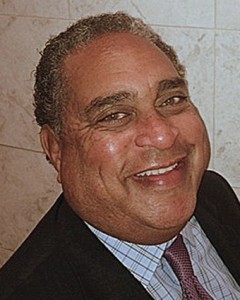A Brief Primer…
Our firm works primarily with individual investors helping to orchestrate and fund 1031 tax deferred transactions. The exchange process is not something to be approached in a casual manner. Below are some of the questions I am most often asked.
Q: What is the first step you recommend potential exchangers take?
A: Contact a CPA or other tax professional to determine tax liability before assuming any course of action. Not every property sale lends itself to the exchange strategy, every transaction is unique. An analysis to include adjusted cost basis, depreciation, cost segregation, and other metrics are essential. Follow the numbers.
Q: I’ve had enough of dealing with tenants. I’m considering paying my taxes and walking away.
A: While walking away is always an option, at what cost will you be doing so? State and federal capital gain taxes, coupled with depreciation recapture can equate up to 35%-40%. A better course of action may be to look toward net-leased properties. A single tenant building leased to a Fortune 500 company removes the tenant headaches that deter many investors.
Q: What current trends are you seeing in the 1031 space?
A: With the greatest (and largest) generation set to retire, it should come as no surprise that the healthcare sector has shown exceptional strength. Fortunately for exchangers, there are opportunities structured as either fee simple 100% ownership or fractional interests of larger, more diverse portfolios.
Q: Who quarterbacks the chain of custody and maintains the required documentation?
A: Sometimes the devil is indeed in the details. To be compliant the accommodator or qualified intermediary needs to be a “disinterested 3rd party”, your family attorney or accountant is generally a disqualified entity in this instance. Constructive receipt issues can render your exchange noncompliant and trigger an unwanted tax event. Exchange rules are very specific and not open to interpretation.
Q: I have a broker who has helped me a lot in the past.
A: You’ll want a specialist…not a general practitioner. Ask questions and find out if he or she knows the drill. Ask for client references…and contact them…it’s always good to verify ahead of time. If you have any concerns, there are several firms, like ours, with a nationwide presence that focus on 1031 exchanges full time.
Q: My golf buddy just did a 1031, why not get information from him?
A: While your brother-in-law or bookkeeper may be nice people, chances are they are ill-equipped to successfully navigate your exchange. There are better ways to protect and secure your interests. Look for a competent professional with an expertise in real estate and tax law.
Q: I didn’t know finding a replacement property would be so difficult.
A: With interest rates coming off historic lows, it can be difficult to find a suitable replacement property. Modern technology allows potential exchangers to find replacements nationwide. Whether contemplating a fee simple 100% ownership interest or a securitized real estate offering…be it a DST (Delaware Statutory Trust) or the older TIC (tenant in common) structure…do your homework.
Exchangers need to start in the right direction for a successful outcome. Sadly, we have seen firsthand the results of not staying on point while going through the exchange process. It may seem (and sometimes can be) daunting, but a properly executed tax-deferred exchange is a wonderful planning tool, useful in building and protecting your investment portfolio.
I have been working with investors for nearly 35 years without client or regulatory complaint. We may be able to find you a risk-adjusted solution to suit your specific needs. We have offices in Maine, Pennsylvania, and Florida with real estate sourcing capabilities nationwide.
Greg Hill is managing partner of Prime Property Advisors, Saco, ME









